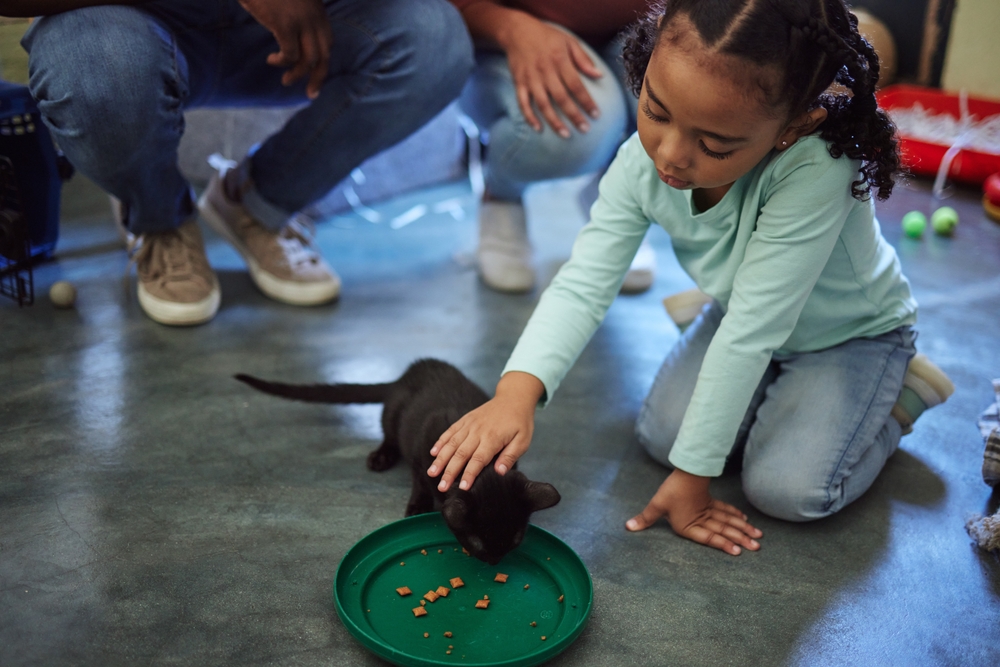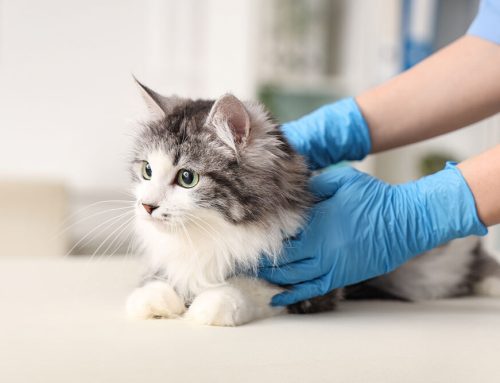If you are considering welcoming a new four-legged family member, finding the right pet is critical to helping ensure the relationship is a success. Our Homestead Animal Hospital team thinks every family is better with a pet, and we offer tips to help you choose the right furry friend for your household.
#1: Ensure your family is ready for a pet
Owning a pet is a big responsibility, and the decision to adopt a new four-legged family member requires careful thought and planning. If you plan to adopt a pet, consider these factors:
- Schedule — All pets need attention, and if your family’s schedule is busy and chaotic, consider whether you have time to care properly for a pet. Do you travel a lot for business? Would your pet be left alone for the majority of each day? Do you have time to interact with your pet daily?
- Finances — A pet’s needs can be costly. According to the American Society for the Prevention of Cruelty to Animals (ASPCA), after a pet adoption’s initial costs, a cat’s annual care is around $1,000, and a dog’s annual care is around $3,000. In addition, veterinary expenses can become extremely expensive if your furry pal has a veterinary emergency. Before adopting a pet, ensure your bank account can support your furry pal’s needs.
- Family members — Always consider your two-legged family members’ thoughts on adding a pet to your household. Does everyone want a pet? Is anyone allergic to pet dander? Is everyone willing to help with a pet’s care?
- Other pets — Consider whether your current pets will accept a new four-legged friend.
#2: Consider your options when adopting a pet
Pets come in various sizes and temperaments, and finding the perfect fit is important. Carefully consider the following pet characteristics:
- Puppies and kittens — Puppies and kittens are adorable and hard to resist, but they aren’t the best option for many people. Puppies and kittens need extra attention and care to provide proper socialization and training, and they may be destructive until they learn appropriate behavior. In addition, puppies may have accidents until they are properly potty trained.
- Senior pets — Senior pets are a great option for families looking for a more sedate pet. They are also great for families who have elderly family members living in the home. Senior pets make great companions, but they may need more frequent veterinary visits, and your time together is likely to be shorter than the time you have with a younger pet.
- Cats — Cats typically don’t require as much attention as a dog, but they still need daily care and interaction.
- Small dogs — Small dogs are cute and fun to dress up in adorable costumes for photo shoots, but they may not be the best option for families who have small children. A young child must be carefully monitored when playing with a tiny dog to ensure they avoid accidentally hurting their furry pal.
- Large dogs — Large- and giant-breed dogs need space. These pets are best suited for people who have a roomy house with a yard or live in close proximity to a park.
#3: Consider your lifestyle when choosing a pet
Are you more likely to spend your free time outdoors or watching movies? If your family enjoys activities, such as hiking and camping, you likely want a pet who can tag along. However, if you and your family are homebodies, you should adopt a sedate pet who prefers to chill out. Consider your lifestyle when deciding on these pet attributes:
- Active pets — Active dog breeds, such as Labrador or golden retrievers, border collies, and Australian shepherds, require a lot of exercise to stay fit and healthy. Leaving an active pet cooped up in the house all day will only make them miserable.
- Sedate pets — More sedate dog breeds include bulldogs, pugs, basset hounds, Pekingese, and Cavalier King Charles spaniels. While cats aren’t necessarily sedate, they are happy to confine their antics to inside the house, making them great pets for homebodies.
#4: Include the entire family when choosing a pet
When choosing a pet, you want to see how everyone interacts. A pet who is friendly and lovable around you may not like children. In addition, some pets prefer people of a certain gender and exhibit fear or aggression around people who are not of that gender. Before bringing home a new pet, ensure everyone living in your household, including current pets, has an opportunity to interact
#5: Decide if you want to adopt a pet from a shelter or a breeder

When deciding on a pet, you must decide if you want to adopt a pet from a shelter or buy from a breeder. Consider each option’s pros and cons:
- Adopting a shelter pet — Shelter pets’ pros include:
- When you adopt a shelter pet, you save two lives—the pet’s life you adopt and the pet who occupies the space they left vacant.
- Most shelter pets are already up-to-date on vaccinations, spayed or neutered, and microchipped.
- Shelter workers can tell you about a pet’s temperament and personality.
- Mixed-breed pets tend to have fewer inherited genetic health problems.
Shelter pets’ cons include:
-
- Unknown background or breeding
- Some shelter pets have behavioral issues.
- Buying a pet from a breeder — Purebred pets’ pros include:
- Reputable breeders provide genetic health testing to determine if your pet is likely to develop certain inherited problems.
- You will know your pet’s background and breeding and be able to see the environment in which they were raised.
Purebred pets’ cons include:
-
- Purebred pets tend to have more health problems.
- Buying a pet from a breeder can be extremely expensive, and you are usually responsible for all veterinary care such as vaccinations, microchipping, and spaying or neutering.
If you have adopted a new pet, contact our Homestead Animal Hospital team, so we can meet your new four-legged family member and give them a clean bill of health.
















Leave A Comment